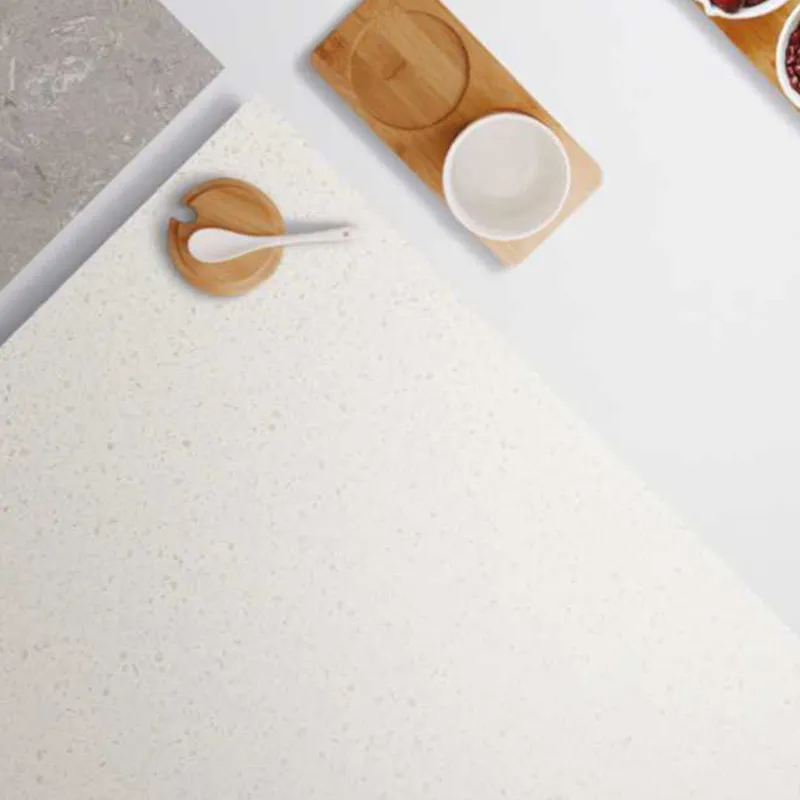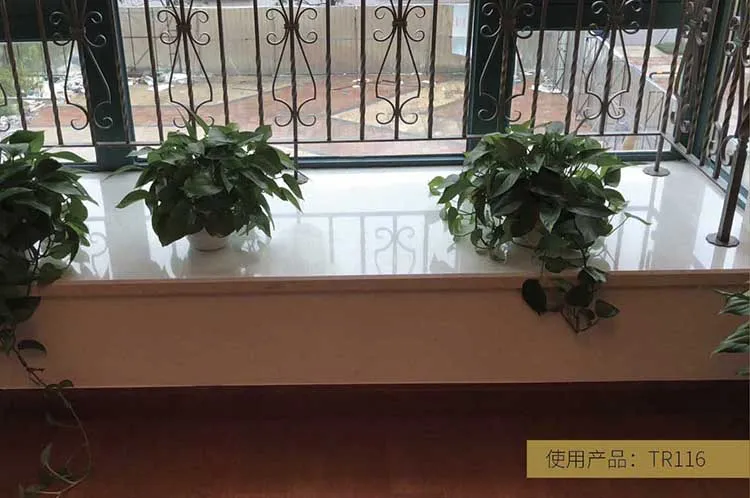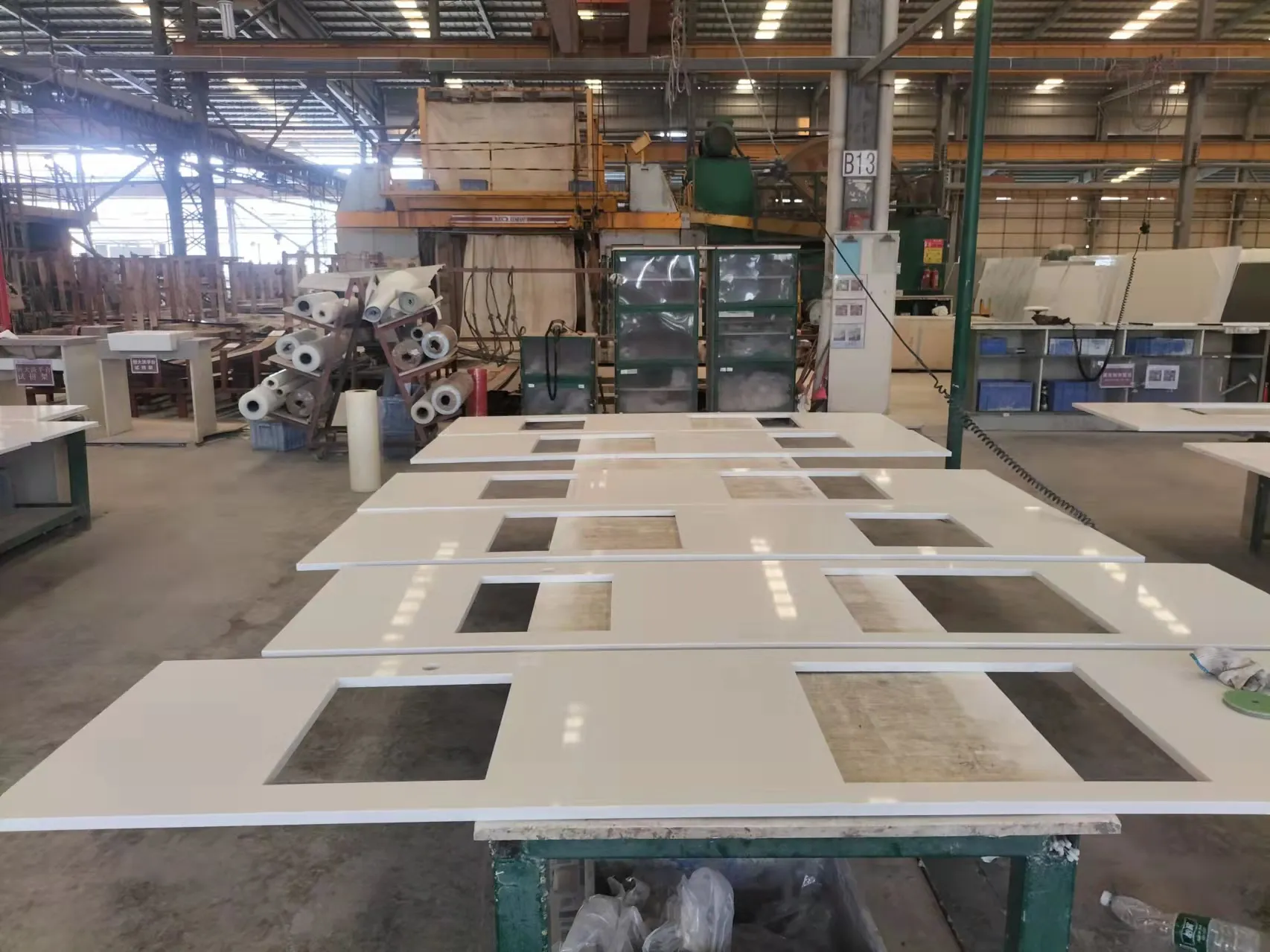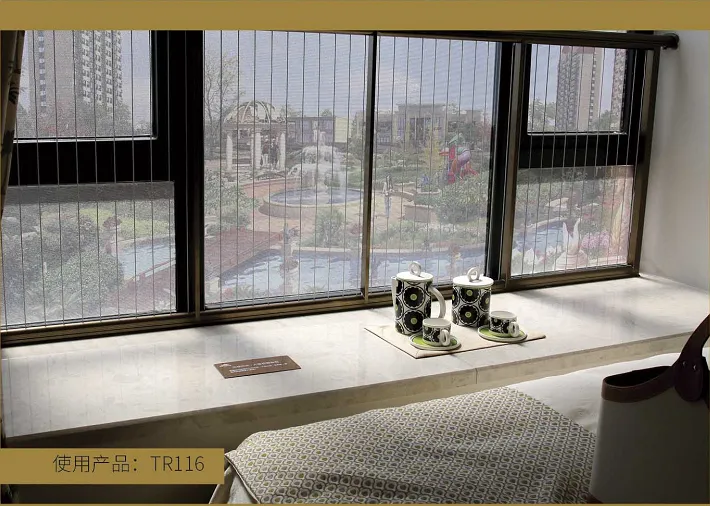In the fields of modern architecture and decoration, engineered stone and quartz stone are two popular materials. Although they have many similarities in appearance and function, there are significant differences in material composition, manufacturing process, performance characteristics and application range.
This article will delve into the differences between engineered stone and quartz stone to help consumers and designers make informed decisions when choosing materials.

Definition and characteristics of engineered stone
Engineered stone, also known as composite stone or artificial stone, is a synthetic material made from natural stone powder mixed with resin. It combines the beauty of natural stone with the high performance of artificial materials and is widely used in construction and decoration fields.
The main features of engineered stone include:
1. Diverse ingredients
The ingredients of engineered stone can include marble powder, granite powder, quartz powder, glass fiber and resin. The combination of different ingredients can give engineered stone different properties and appearance.
2. High strength and durability
Engineered stone has high strength and durability and can withstand heavy pressure and wear. Its hardness and scratch-resistant properties make it suitable for high-traffic and high-use areas such as commercial buildings and public facilities.
3. Flexible design
Engineered stone can be molded into a variety of shapes and sizes to meet different design needs. In addition, its color and texture can be customized according to customer needs, providing a wealth of design options.
4. Environmental protection and sustainability
The manufacturing process of engineered stone can use waste stone powder and other recyclable materials to reduce resource waste and has better environmental protection.

The definition and characteristics of quartz stone
Quartz stone is a high-performance material synthesized from natural quartz crystals and resin. Quartz stone has become the preferred material for kitchen countertops and bathroom countertops due to its excellent performance and beautiful appearance.
The main features of quartz stone include:
1. High purity quartz crystal
The main component of quartz stone is natural quartz crystal, whose content is usually more than 90%. The high purity of quartz crystal gives quartz stone extremely high hardness and wear resistance.
2. Excellent stain resistance and antibacterial properties
The surface of quartz stone is dense, not easy to penetrate stains, and has good stain resistance. In addition, its antibacterial properties are also very good, making it suitable for use in areas with high hygiene requirements such as kitchens and bathrooms.
3. High temperature resistance and corrosion resistance
Quartz stone has good high temperature resistance and can withstand high temperatures in daily cooking. In addition, its corrosion resistance is also excellent and can effectively resist the erosion of acid and alkali substances.
4. Beautiful and diverse appearance
The color and texture of quartz stone can be customized by adding different pigments and fragments, providing diverse options to meet different decorative needs.

The main difference between engineered stone and quartz stone
Engineered stone is a synthetic material made from natural stone powder mixed with resin. Quartz stone is a high-performance material synthesized from natural quartz crystals and resin. Although engineered stone and quartz stone are similar in appearance and certain properties, they have significant differences in material composition, hardness and wear resistance, stain resistance and antibacterial properties, high temperature resistance, and application range.
The specific differences between the two are as follows:
1. Material composition
★ Engineered stone: Mainly made by mixing various natural stone powders (such as marble powder, granite powder, quartz powder) and resin. Its ingredients are diverse and can be adjusted as needed.
● quartz stone: The main component is high-purity quartz crystal, its content is usually more than 90%, and the remaining part is resin and pigment.
2. Hardness and wear resistance
★ engineered stone: Due to its diverse composition, the hardness and wear resistance may vary. Generally, the hardness is higher, but not as good as quartz stone.
● quartz stone: The high content of quartz crystal makes its Mohs hardness reach level 7, which has extremely high wear resistance and scratch resistance.
3. Stain resistance and antibacterial properties
★ Engineered stone: It has better stain resistance and antibacterial properties, but there may be certain differences due to its different ingredients and manufacturing processes.
● quartz stone: The surface is dense, difficult for stains to penetrate, and has excellent stain resistance and antibacterial properties. It is especially suitable for use in kitchens and bathrooms.
4. High temperature resistance
★ Engineered stone: It has good high temperature resistance, but may be deformed or damaged under extreme high temperatures.
● quartz stone: It has strong high temperature resistance and can withstand high temperatures in daily cooking, but it still needs to avoid direct contact with extremely high temperature objects.
5. Application scope
★ Engineered stone: Due to its diverse composition and high strength, it is widely used in many fields such as floors, walls, countertops and decorations, and is especially suitable for commercial buildings and public facilities.
● quartz stone: mainly used for kitchen countertops and bathroom countertops, but can also be used for floor and wall decoration. Its excellent performance makes it a popular choice for home decoration.

Suggestions for choosing engineered stone and quartz stone
When choosing engineered stone and quartz stone, consumers and designers should choose based on specific needs and application scenarios:
1. Kitchen and bathroom countertops
If you need a material with high wear resistance, stain resistance and antibacterial properties, quartz stone is the best choice. It can withstand heavy use in kitchens and bathrooms, maintaining appearance and hygiene.
2. Commercial buildings and public facilities
Engineered stone is ideal for locations that require high strength and durability, such as commercial buildings and public facilities. Its diverse composition and high-strength properties enable it to meet the special needs of these locations.
3. Personalized design
If you need a rich selection of colors and textures, or have special shape and size requirements, engineered stone and quartz stone can meet these needs. Engineered stone is more flexible in shape and size, while quartz stone has advantages in color and texture.
Conclusion
Engineered stone and quartz stone are important materials in modern construction and decoration fields, each with unique advantages and application scenarios. Understanding their composition, properties and application range can help consumers and designers make informed decisions when selecting materials.
I hope that the detailed analysis in this article can provide readers with practical reference to help everyone choose the most suitable materials in practical applications and improve the quality and aesthetics of construction and decoration.

